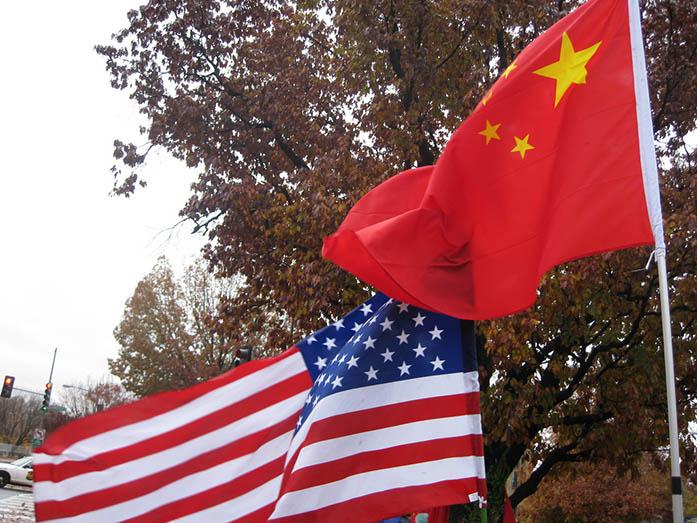Emily Van Kirk
It’s no secret that China lacks what we in the West perceive as basic intellectual property rights. Whether you’re in the market for a pair of fake Yeezys or a paper for class, counterfeited goods are readily available in China.
Enrolling approximately 3,000 Chinese undergraduate students, the University of Iowa International Programs have introduced Iowa City to East Asian cultures, otherwise mostly unavailable in the Midwest.
The luxury vehicles and brand-name goods surrounding Chinese nationals easily indicate the lucrative wealth associated with traveling from China to America for university study.
Chinese communities at the UI have formed an enclave, spawning exclusive interactions among Chinese compatriots. Even in the classroom, Chinese students need not look far for a fellow Chinese-speaker.
Given that in the U.S., a university degree is a step toward career development, in China, college-entrance exams administered in high school often dictate a student’s professional future. Chinese students who have the means and the desire to attend university abroad bypass this examination system, instead focusing their high-school career on cultivating a successful college application.
While attending an American college, the norms associated with university life in China remain largely intact in the Chinese student communities.
I grew up in Hong Kong, traveled frequently to mainland China, studied Chinese as my major, and recently spent a summer at a Chinese university. As a result, I have, as an outsider, experienced the Chinese education system firsthand and at different levels.
The most notable difference is a concept called “guanxi.” In China, good grades and job potential do not merely stem from hard work but from the relationships built.
It is this fundamental difference between the American and Chinese education system that has enabled scenarios in which Chinese students violate what Americans perceive as commonsense rules against plagiarism.
Outside of intellectual property rights, a social hierarchy among exorbitantly wealthy Chinese students dictates a system that pays hardworking Chinese students in need of extra money to attend class and take exams for the richer students. This phenomenon is from the mainland and is evident of a growing nouveau riche class in China.
Last spring, the UI led an investigation on at least 30 Chinese students related to a plagiarism scandal. Although limited details are available on the case because of federal privacy laws, it accentuates the likelihood that plagiarism among Chinese students at the university extends further than any single student.
The exclusive nature of the Chinese community at the UI also allows Chinese-language cheating advertisements to go largely unnoticed. Most Americans unfamiliar with the language easily ignore a sign posted in Chinese advertising an online paper-writing service. Only people who are familiar with the Chinese language and culture realize the reach of opportunities for plagiarism.
From the case I’ve made, the objective approach would assume that Chinese tendencies toward plagiarism, brought to Iowa by growing populations of Chinese students, can be boiled down to their culture. This is not necessarily the case. There is also the matter of circumstance to consider.
If the university were to extend the reach of East Asian language and culture programs, American students may increase their understanding of the Chinese, who diversify the UI campus. Enrollment rates of Chinese nationals at the university are increasing. The university and American students alike can be proactive by taking steps to understand Chinese culture, as well as the circumstances that lead to instances of cheating among international students pursuing degrees here.



